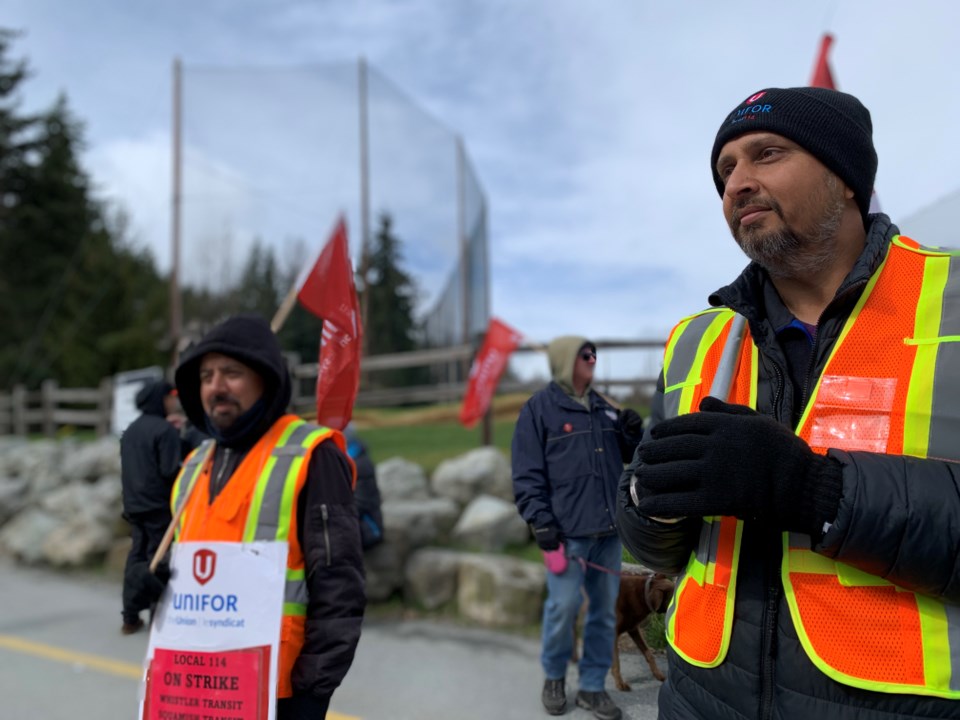More than three months in and there is a flicker of light at the end of the tunnel for the Sea to Sky transit strike after the parties involved agreed to head back to the bargaining table after weeks of not meeting.
Employer Pacific Western Transportation (PWT) and Unifor Local 114 have jointly agreed to resume negotiations alongside mediator Dave Schaub on Wednesday, May 11 to try to put an end to the 14-week strike that has completely shut down transit services across the corridor.
"The Company understands the enormous impact this strike has had on the residents of Squamish, Whistler and Pemberton, especially all those who rely on public transit on a daily basis. We are hopeful these meetings will result in a fair and reasonable agreement so our employees return to work serving the Sea to Sky communities," said PWT, the private company contracted by BC Transit to deliver transit services in the Sea to Sky, in a statement Friday, May 6.
A few dozen local transit operators held a rally Friday outside the Westin in Whistler to coincide with the Lower Mainland Local Government Association Conference.
“Transit workers have demonstrated incredible determination over the last three months,” said Gavin McGarrigle, Unifor's Western regional director, in a statement. “We will enter these new negotiations in good faith and will continue to bargain for fair compensation.”
More than 80 transit workers in the region have been on strike since Jan. 29. The main remaining point of contention for the union centres around achieving wage parity with transit workers in Vancouver, where, in March, they voted to ratify a one-year contract extension that included a three-per-cent wage increase for transit operators and a five-per-cent hike for skilled tradespeople, further widening the gap in relation to transit employees in the Sea to Sky.
In late March, Unifor declined PWT's offer to go into arbitration—which would have allowed transit service to resume while negotiations were ongoing—after the contractor declined to budge on wage parity. While the two parties had made headway on extending benefits and pension plans to local transit workers, the wage issue was a non-starter. After Unifor rejected the proposed settlement package, PWT withdrew its offer to enter arbitration so that the third-party arbitrator would have the ability to review the entire package, as opposed to just wage rates. That offer included benefits for all employees paid entirely by the employer, as well as a commitment to adopt Unifor’s CAAT pension plan for all workers. The private contractor also offered fully retroactive wage increases in each year of the proposed deal, as well as a large signing bonus—but wage parity has long been the major priority for the union.
Since local transit workers began their strike on Jan. 29, the two sides have spent just three whole days at the bargaining table.
Check back with Pique for more on this story as it develops.





